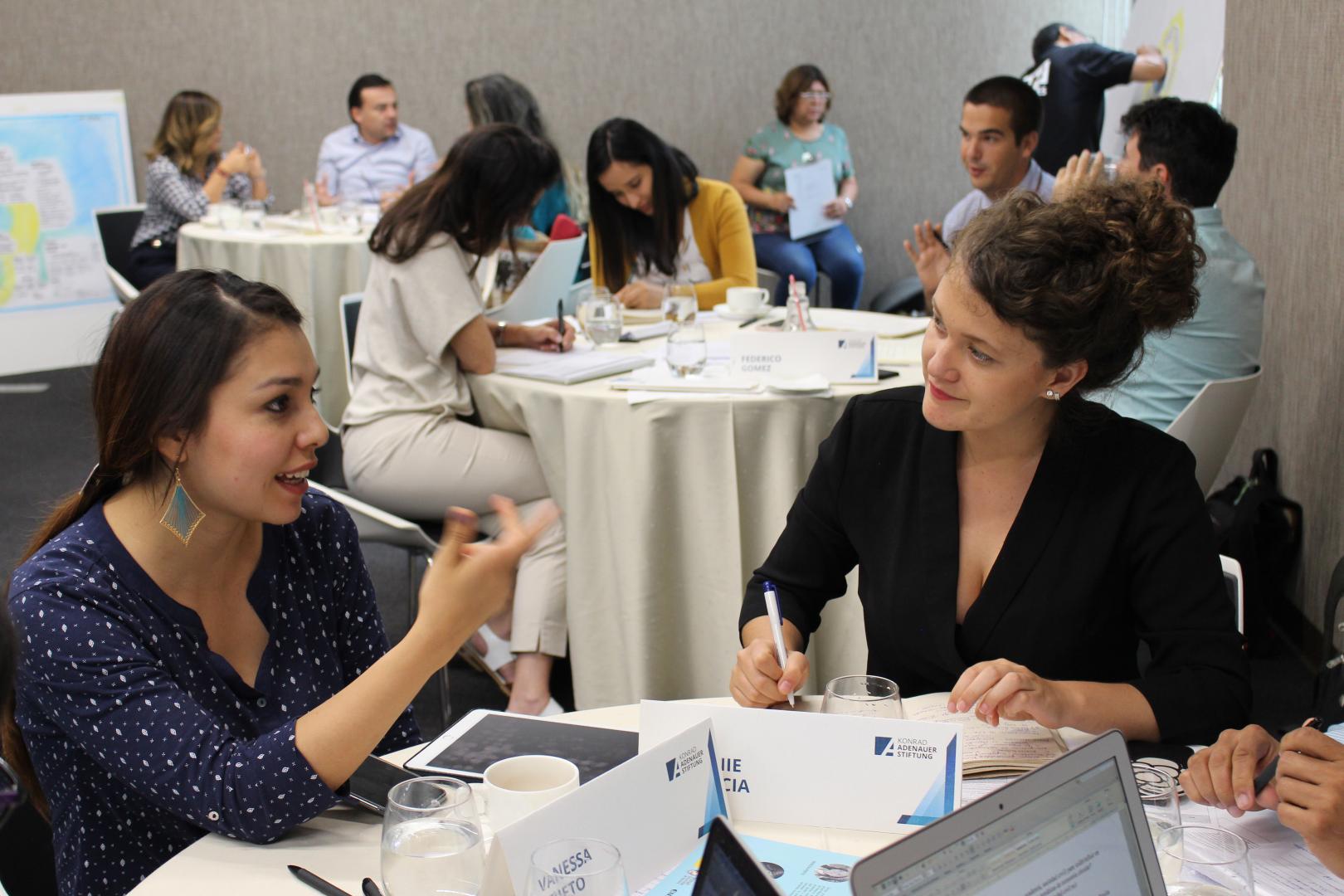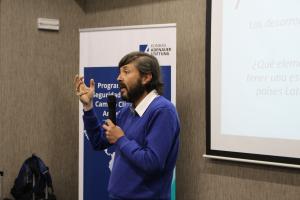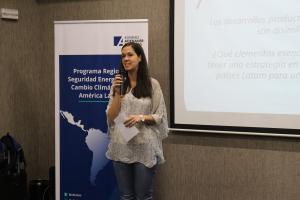The generation of municipal waste in the countries of Latin America and the Caribbean reached a volume of 540 thousand tons per day by 2017. And although the average collection coverage in the region is 90%, the final disposal of waste is inadequate. Generating environmental and social pressure and affecting the quality of life of the inhabitants. The circular economy wants to face this type of problems, from a model of design, production and consumption that makes it possible for resources to continue generating value over time,reducing to a minimum the waste from production processes and their impact on ecosystems. This continuous re-use of resources in favour of a positive environmental impact is what differentiates the classic linear economy, which consists of a model of extraction, production and waste. Although some countries in the region have made substantial progress in spreading and developing the circular economy model, others have only approached the concept through specific initiatives or have not made any progress at all. Therefore, EKLA KAS and CIEC teamed up to carry out the first study of "Circular Economy and Public Policies: state of the art and challenges for the construction of a political framework to promote a circular economy in Latin America".
As part of the study, we conducted our First Workshop with great enthusiasm. It was led by Luis Martínez Cerna and Daniel Gómez from CIEC, in which we learned more about the public policy experiences of Peru, Uruguay, Chile and Colombia.
From Peru, Victoria Rivera, a specialist in Waste Management from the Ministry of Environment, highlighted the Principle of Circular Economy, Waste Recovery, REP (extended producer responsibility), Shared Responsibility and Environmental Protection and Health. They are part of the new aspects that regulate the Law of Integral Management of Solid Waste, as well as the Supreme Decree of the National Policy of Competitiveness and Productivity. One of its priority objectives is to promote environmental sustainability in the operation of economic activities. An example of this is the first Clean Production Agreement between the Ministries of Environment and Production with Coca-Cola and Lindley.
María José González, UNIDO consultant and National Coordinator of the BIOVALOR project in Uruguay, shared the objectives and results of her project, which currently prioritizes 16 industrial sectors and works with technologies such as biogas, compost – utilisation of nutrients, alternative fuel and other by-products derived from agro-industrial waste. She also highlighted the joint work between the Ministry of Industry, Energy and Mining, the Ministry of Housing, Land Management and Environment and the Ministry of Livestock, Agriculture and Fisheries and the Ministry of Economy and Finance, to identify early actions in the valuation of materials. These same actors, together with the National Development Agency ANDE, UNIDO, the project BIOVALOR and other entities, also launched a Circular Opportunities Program, with ideas and projects reaching from nutritional supplements, construction materials, food products, to circular beer system and sustainable tourism.
From the Chilean experience, Pablo Fernandois, Coordinator of the Ministry of Environment, showed the progress in his country, beginning with the creation of his workplace, named "Circular Economy Office", which indicates the importance of the topic for the government. As in Peru, there is a Recycling Law that creates the Extended Producer Responsibility (REP). This allows imposing obligations such as prevention measures in the generation of waste, eco-design requirements, among others. Currently, he is working on a Roadmap for a Circular Chile, focused on REP, organic and construction waste, in alliance with the Ministry of Economy, Development and Tourism, CORFO and the Agency for Sustainability and Climate Change. On the other hand, the Regional Government of Tarapacá approved the creation of the Technological Center in Circular Economy in that region, with an initial investment of more than 9 million pesos.
Ricardo Bula Torres, Advisor of the Directorate of Urban Development, from the National Planning Department (DNP) of Colombia, presented the National Strategy of Circular Economy. He explained how antecedents such as the National Policy of Production and Sustainable Consumption, as well as the Policy for the Integral Management of Solid Waste and the Green Growth policy have led to the next step focused on circular economy (#economíacircular). Currently, the Strategy under elaboration is in the stage of inventory of initiatives and development of sectoral and regional goals, within a plan that includes a second follow-up of the Strategy at the evaluation level by mid-2022.
Although the four countries have made strong progress, it was clear that there is still a long way to go and, above all, a long way to land, from the level of public policies to concrete and practical actions. The experiences presented were debated by experts from different countries, who from their field, always focused on the economy, compared and shared their own experiences in the public and private sectors, and the interaction of both sectors.
This first workshop also showed the private sector with a social focus, through Pipo Reiser, Director of Alliances of Sinba, a Peruvian company that works with gastronomic waste from restaurants and different educational institutions in Lima, to generate a garbage-free world (#sinbasura). Thanks to Sinba, we got to know Mó Bistró, a Lima restaurant with a social and environmental spirit, which firmly believes in sustainable gastronomy and in the role and leadership of the chef to generate a positive impact on society through a circular economy approach.
Thanks to the experts summoned and the experiences shared, we were able to have a first idea of the state of the circular economy in the countries of the Latin American region. Whatever the progress of each country, there is the intention to be more ambitious with the circular goals and to work in a more coordinated way between the different national initiatives.







